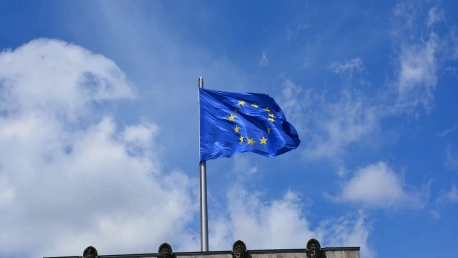As Europe’s technology ministers prepared for a crucial meeting in Ireland, a coalition of industry powerhouses—namely Ericsson, Nokia, Vodafone, IBM, and Intel—emerged from the background, acting in unison. These titans of tech presented a united front, calling upon the European Union to adopt progressive digital policies. Their proposition emphasized the need to leverage burgeoning technologies, outlining a vision to reinforce Europe’s global standing within the flourishing sector of the industrial internet. The companies argued that embracing these advancements is imperative for Europe to remain at the forefront of the digital age, suggesting that the current summit provides a timely platform to initiate this vital transformation. This concerted push by the tech giants underlines the strategic importance of the digital domain in securing economic and technological leadership on the European stage.
Creating a Unified Digital Market
Harmonization of Digital Regulations
Leading figures in the technology sector are spearheading a campaign emphasizing the optimization of existing regulations to establish a fully integrated digital single market. Their primary argument revolves around the concept that realizing the full potential of current laws is more advantageous than introducing new regulations that may impose unnecessary limitations. They believe that leveraging current rules to their fullest will not only unify the digital marketplace but also accelerate the growth and deployment of innovative networks throughout the region. By refining and expanding the applicability of current legislation, these industry authorities are convinced that a more harmonized digital environment can be cultivated, which is essential for the advancement and consistent expansion of the digital economy. They underscore that the focus should be on making the present regulations more adaptable and wide-reaching, paving the way for a digital single market that supports continuous innovation and development.
Incentivizing Infrastructure Investment
In a united call, major tech players underline the vital importance of boosted investment incentives for comprehensive mobile and fixed network infrastructures—key pillars of a flourishing digital economy. The firms advocate for the introduction of tax breaks and fiscal tools tailored to propel the growth of cutting-edge network technologies. With an eye on fostering a conducive environment for investment, they urge EU authorities to revisit and potentially overhaul current merger rules and spectrum management policies. Their suggestions include the provision of extended spectrum licenses and the harmonization of regulatory frameworks across member states to create a predictable and secure investment landscape. This, they argue, is paramount for laying down a solid infrastructure foundation essential for digital innovation and economic success.
Fostering Innovation and Security
Differentiating Consumer and B2B Technologies
Industry communication has underscored the distinct separation between consumer tech and B2B technologies. Emphasizing a need for a trustworthy regulatory climate, they argue that such an environment underpins the growth and innovation of credible enterprises within Europe. They advocate for policy frameworks that cater to the unique needs of B2B tech sectors, including aspects such as trade, hiring practices, and research and development. The underlying idea is that by tailoring policies to support these sectors, Europe would not only advance internally but also strengthen its position on the global stage. This strategic focus on B2B technologies echoes the broader objectives of enhancing Europe’s economic standing through specialized attention to industry-specific dynamics, ensuring that businesses have the right conditions to thrive and contribute to the continent’s competitive edge in the international market.
Prioritizing Emerging Technologies
Corporate giants are eyeing the rise of AI and quantum computing, urging the nurturing of early industrial research and boosting cybersecurity against quantum threats. They advocate for resilient supply chains and updated cybersecurity protocols. The aim is to establish a fertile environment for tech innovation within Europe, to safeguard against potential dangers and keep Europe at the technological vanguard.The overarching theme from tech leaders is clear: Europe’s technological leadership hinges on a collaborative strategy between the EU and industry sectors. This alliance should prioritize a future-proof digital infrastructure ready to embrace upcoming tech revolutions. They suggest that policymakers create a regulatory framework that favors swift and ethical tech advancement. This strategy is essential for Europe to effectively navigate and lead in the forthcoming waves of technological advancement.









